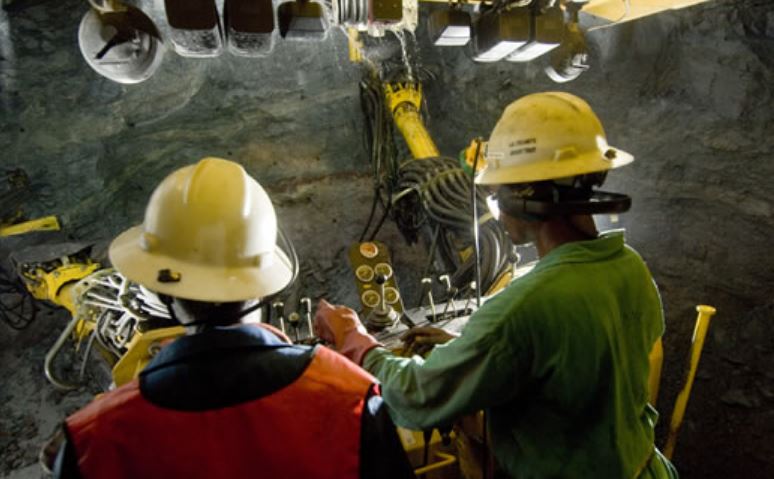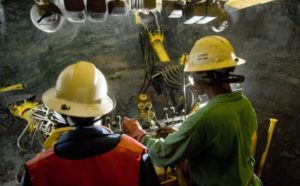Katanga suspends cobalt sales from DRC mine

Underground mining operations at the Kamoto Mine, DRC. Source: Katanga Mining Ltd.

Glencore AG‘s [GLEN-LSE] Katanga Mining Ltd. [KAT-TSX] said Tuesday November 6 that it will temporarily suspend the export and sale of cobalt produced from its 75%-owned Kamoto Copper Co. project in the Democratic Republic of Congo (DRC) until further notice.
Its partner in the project is Gecamines, a state-owned mining company in the DRC.
Katanga said the presence of uranium was recently detected in the cobalt hydroxide produced at the Kamoto Project in levels that exceed the acceptable limit allowed for export of the product through main African ports to customers.
To date, the total cobalt production impacted by the sale suspension amounts to 1,470 tons of finished cobalt, the company said.
On Tuesday, Katanga shares were down 21.88% or 14 cents to 50 cents on volume of 3 million shares. The 52-week high for the stock is $2.83.
Production of cobalt at the Kamoto Project is expected to continue without a reduction in the quantity produced. The company said it is currently conducting additional surveys to identify the source of the uranium and exploring various options to mitigate the impact of the sale suspension.
Meanwhile, Katanga said it intends to construct an Ion Exchange system to remove the uranium from cobalt produced at the project. The cost is estimated at US$25 million. Subject to gaining the necessary approvals, the Ion Exchange system is expected to be commissioned by the end of the second quarter of 2019.
The finished cobalt production will be stored on site and processed in the Ion Exchange system was construction is complete.
Katanga has said it has the potential to become Africa’s largest copper producer and the world’s largest cobalt producer.
The Kamoto Project includes exploration and mining properties, the Kamoto concentrator, the Luilu metallurgical plant, the Kamoto underground mine and two oxide open pit resources in the Kolwezi district of the DRC.
The DRC currently accounts for about 54% of the world’s cobalt production.
Cobalt, which is produced primarily as a by-product of copper and nickel, has recently become a hot investment area due to its key role in the production of rechargeable batteries used in the manufacture of electric vehicles.
In the second quarter ended June 30, 2018, Katanga said the average cobalt price jumped to US$42.45 a pound from US$26.06 in the second quarter of 2017. Cobalt revenue in the second quarter increased to $141.1 million from zero in the same period last year.
This was due to the fact that in December, 2017, Katanga resumed the processing of copper and cobalt, which had been suspended since September, 2015, during the construction phase of the ore leach processing facility at Kamoto.
When the ore leach processing facility was commissioned, Katanga said it was gearing up for a life of mine cobalt production plan of 30,000 tonnes per annum.
